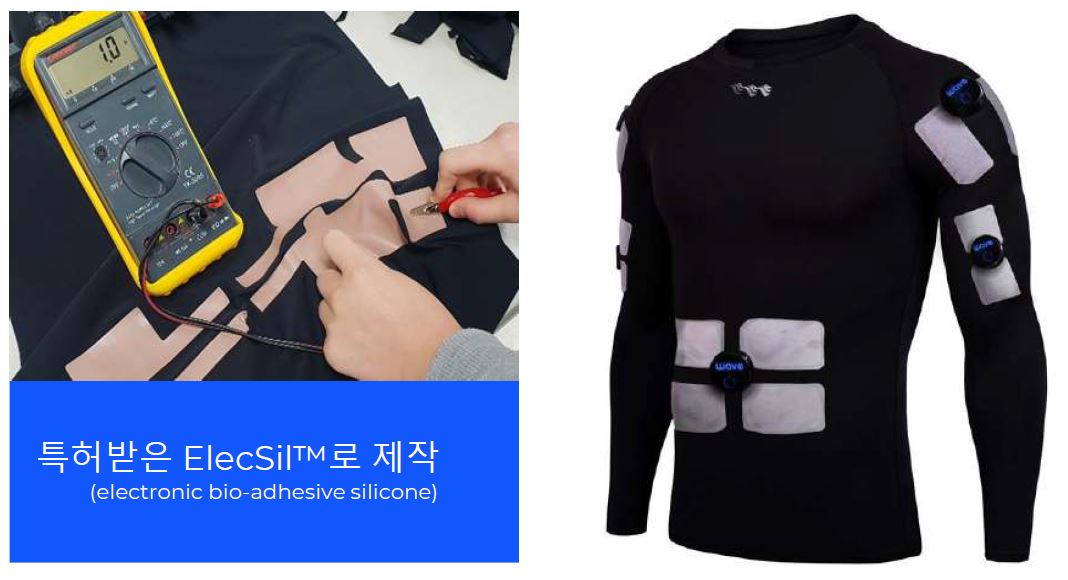
It’s been a while since we haven’t traveled to meet innovators, and since international travel is likely to be disrupted for now, so we have decided to proceed with our new series called Ubergizmo Discovery via video conferencing.
Ubergizmo Discovery will feature innovative companies that we discussed with. We looked at their products and “raison d’etre” to tell you who they are and what problems they are trying to solve.
This episode features South Korean companies that we discovered through various media partnerships with local media and incubators. This time, we partner with Korean media Aving during the Digital Content Company Global Workshop event in South Korea to meet new startups.
If you want all the details, you can watch the full video chat at the end of the article, but we are writing about our takeaway of three companies we talked to Pixelitygames, The wave Company, and Maunzi.
Pixelity Games
Pixelity games is a VR gaming company, and their latest title is called “The Patcher” (demo available on steam).
The game’s backdrop is that in Neo JS City, the elites have relegated a lower class of citizens to live underground in a ruthless fight for survival. They live in housing called “Patch Builds,” so these people call themselves “Patchers.” That reminded me a bit of the Morlocks vs. Eloys in H. G. Wells’s The Time Machine.
The game’s gameplay trailer first appeared around June 2021 and shows a multiplayer faction-based fighting system that mixes shooting (FPS-style) and edged weapons. Players can also gain experience and obtain new weapons, which is an incentive to keep engaged with the game over time.
The Patcher is still in open beta, but the development team (23 strong) told me that they are accepting additional beta-players on an ongoing basis. At the moment, Oculus is their primary VR hardware platform, but I’ve confirmed with the team that it’s not too much work to port to other VR headsets.
The developers will only rely on game sales to generate revenues. Therefore, there are no in-game purchases or possibility to buy virtual currency with real cash. I respect a hardcore gamer point of view, even though in-game purchases might have generated more income from a business point of view.
The minimum config is a PC with a GTX 1060 GPU, and the main attraction here is the unique universe and game dynamics. I thought that the graphics are attractive, especially for an indie VR game. Check for yourself:
The Wave Company

The Wave Company is a Wellness Wear company that is looking at entering the Virtual Reality (VR) Suit and VR Gloves high-tech market, and it may hold an advantage thanks to the “interlocking bio-silicone” fabric that it makes today for sportswear.
Some Wave Company products like WaveWear have a similar effect to Kinesiology Tape. Such tape is supposed to improve lymphatic flow and drainage, which would reduce muscle fatigue or soreness. That’s why you see this tape on athletes more and more, including in the recent Olympics.
WaveWear provides the same functionality as the tape. However, because it is embedded directly in a sock or t-shirt, it’s much easier to put on than actual tape. Everything lands in the right spot, something that usually requires some expertise to place it right. Wave Company’s proprietary wearable electrode is only 0.78mm thick and is washable.
Virtual Reality applications would be enabled by a derivative of the company’s Electrode Adhesive Bio-Silicone called “ElecSil” that can induce EMS (Electrical Muscle Stimulation).
It is not uncommon in the VR world that EMS and TENS (Transcutaneous Electrical Neural (or Nerve) Stimulation) produce some haptic feedback. However, the Wave Company hopes to do it in a more cost-effective and integrated way, thanks to its existing work on Wellness Wear.
Finally, the same technology is used to create monitoring sportswear with integrated sensing that could be hooked up to a computer instead of wiring many electrodes with adhesive. The possibilities are open-ended, and The Wave Company thinks it could become “the next Peloton.”
Maunzi Corp
Maunzi is a company building an educational coding platform based on programming robots, primarily for 8-13 years old. The robots are made of several cubic modules that are each have a specific function such as Lighting, Motor, power-charging, and more (here’s the list)!
At the moment, Maunzi is working with education companies to include its hardware in their curriculum, but they hope to scale this effort to the rest of the world in time. The company says that it has received orders for 1M kits so far.
The cubes are also compatible with Lego blocks, making it extremely easy to customize the looks of any project based on the incredible availability and universality of the Lego ecosystem.
Beginners can start with Visual coding via the included apps. However, more advanced users can use Java or Python to build more complex programs to control the robots. I haven’t used it myself, but the number of base blocks does offer a good set of functionalities. I particularly like the joint blocks that allow the creation of snake-like robots.
Maunzi has been around for a few years, but they plan to come back on Kickstarter with new kits. What’s new this time is that instead of selling individual blocks and leaving it to the users imagination, each kit will represent a complete character or robot, increasing user engagement and satisfaction.
Complete video chat
In the full interview video you quick jump to each company using the following timecodes.
- Pixelity Games (00:00 – 24:00)
- The Wave company (25:00 – 45:30)
- Maunzi (01:34:00 – end)
Filed in . Read more about Innovation, Korea, Startups and Ubergizmo Discovery.